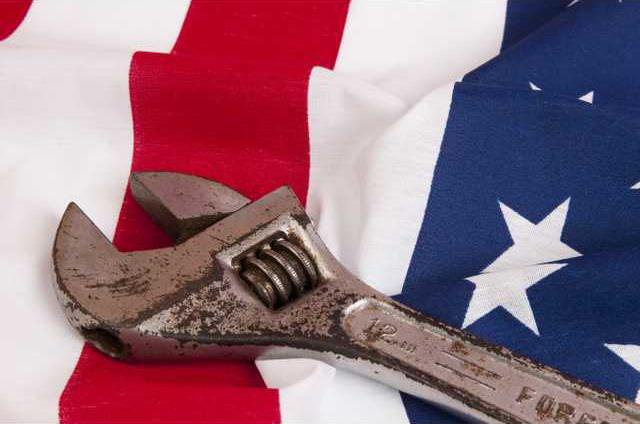According to a recent analysis done by USA Today, the American Dream carries a price tag of $130,000 a year. The annual breakdown includes essentials like groceries at $12,659, a 4WD SUV and other associated vehicle costs at $11,039. Extras include things like vacations, entertainment, internet and cellphone for a combined total of $17,009. Based on the U.S. Census Bureau, as quoted in the USA Today article, only 16 million U.S. households — one in eight altogether — earned enough to qualify.
The analysis seems to agree with the majority of Americans who see the American Dream as something that is becoming increasingly out of reach. A study performed by LearnVest and Chase found that only 43 percent of respondents felt that the American Dream can be achieved in the country’s current economic state. A separate poll done by CNNMoneyseems to concur, showing that 63 percent of young adults, age 18 to 34, believe that the dream of having more wealth than their parents is unattainable.
If these numbers are true, the simple conclusion to make would be to declare the American Dream dead — a fleeting delusion mired by high unemployment and a widening income gap. But it's important to note that the American Dream hasn't always been about material wealth.
The original American Dream
The term “American Dream” was first coined by James Truslow Adams in his 1931 book "The Epic of America." To quote his definition at length, he referred to it as:
“That dream of a land in which life should be better and richer and fuller for everyone, with opportunity for each according to ability or achievement. It is a difficult dream for the European upper classes to interpret adequately, and too many of us ourselves have grown weary and mistrustful of it. It is not a dream of motor cars and high wages merely, but a dream of social order in which each man and each woman shall be able to attain to the fullest stature of which they are innately capable, and be recognized by others for what they are, regardless of the fortuitous circumstances of birth or position.”
Based on Adams’ definition, material wealth was more of an unintentional byproduct of the opportunity offered in this country. Indeed, the American Dream, as novelist Thomas Wolfe said, is “to every man, regardless of his birth, his shining, golden opportunity … the right to live, to work, to be himself and to become whatever thing his manhood and his vision can combine to make him.”
Are expectations too high?
While the overall shift toward materialism isn’t surprising per se, the current attitude is enough to make one wonder if Americans are taking their opportunities for granted. To be sure, the current economic conditions don’t provide the same opportunities as were available prior to the financial crisis. But consider that Adams first introduced the idea of the American Dream just two years after Black Tuesday hit Wall Street, sparking the beginning of the Great Depression that saw more than 5,000 banks fail and unemployment peak at 25 percent.
It makes one wonder if the rise of consumerism and its personified “Joneses” have provided the American people with unhealthy expectations of what it means to be truly happy. Popular culture clings to the lives of the rich and the famous, turning the likes of reality television personalities into role models not so much for their redeeming qualities, but for their flashy lifestyles, leading many to conclude that unless they’ve hit it big, they will never “have it all.”
In Psychology Today, Lauren Sandler suggests that “the American Dream has become an American Expectation — a version of happiness achieved by entitlement and equation: Two fat incomes plus a two-car garage plus two master-bathroom sinks plus two-point-something kids equals one happy family.” Sandler also mentions that countries that generally rank higher in terms of happiness — specifically Sweden and Denmark — don’t have the same expectation that money equals happiness.
Restoring the American Dream
Struggle has always been a part of the American life. The history of our nation has been defined by it. The Puritans who sought religious freedom and the revolutionaries who fought to maintain that freedom set that precedent. As popular culture attempts to redefine the American Dream, the evolution invariably moves toward comfort and convenience as the alpha and omega.
But it won’t be long before we realize that this version of the American Dream is the dream that has failed Americans, not its predecessor. Americans would do well to focus on the original ideal that offers opportunities, not handouts; views earning the fruits of one’s labors as a gift, not an inconvenience; and is no respecter of a person’s background, personality or circumstance.
It is true that several facets of the American system are broken. But as long as its citizens believe in the dream that was gifted to them by their forefathers, there will always be a chance of redemption.





